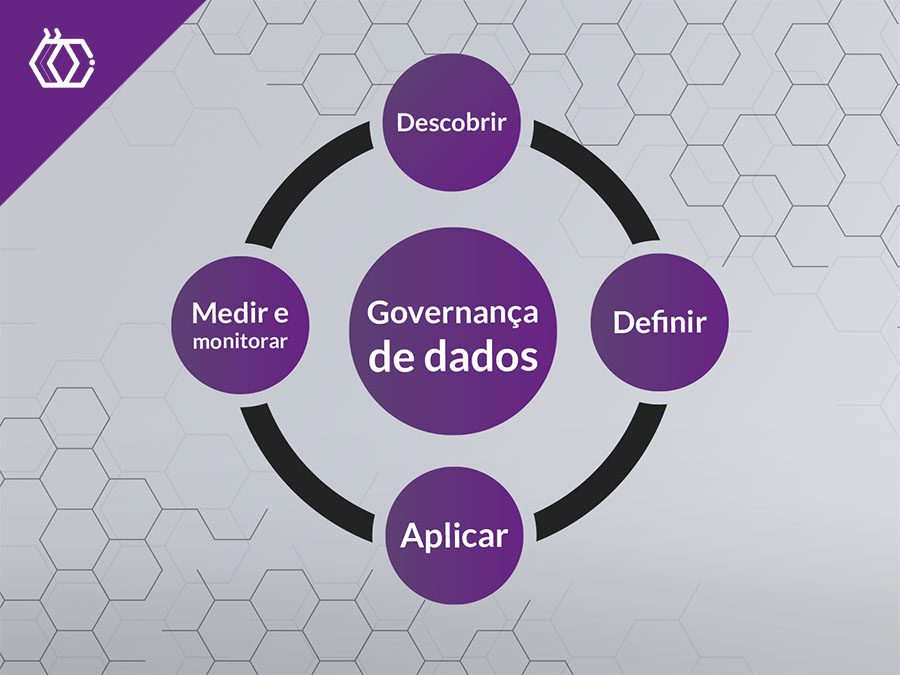

Data Governance
(6 minutes of reading) Data governance is an increasingly important aspect of modern businesses and organizations. It is the process of managing, organizing, and controlling access to data in an organization. Effective data governance allows companies to ensure that their data is secure, accurate and consistent across all areas of the business. When done correctly, it can lead to greater efficiency, better decision making and better customer service. With that in mind, we'll explain the fundamentals of data governance and how it can help organizations maximize the value of their data. WHAT IS DATA GOVERNANCE? Data governance is a process that allows organizations to ensure that their data remains accurate, secure and in compliance with industry regulations. It involves implementing policies and procedures to govern the management of data assets. Data governance describes how data should be collected, stored, accessed, used, and protected within an organization. The main objective of data governance is to ensure that only authorized persons have access to sensitive information in an organization's systems. It also helps organizations maintain control over their data assets by providing guidance for activities such as configuring retention policies or enforcing security standards. Additionally, it can be used to help identify trends or anomalies in an organization's use of data in order to make informed decisions about how it should be managed or used in the future. Data governance also helps organizations comply with applicable laws and regulations related to the use of customer information and other sensitive business records. BENEFITS OF DATA GOVERNANCE Having a data governance process can offer many benefits to an organization. Data governance helps companies ensure the accuracy and integrity of their data by facilitating easy access to data-driven insights. By using this framework, companies can enable better decision making by improving the governance of their data. Data governance initiatives allow organizations to gain greater insight into the performance of their business operations. By leveraging a comprehensive set of policies, processes and controls to manage enterprise information assets, companies can drive analytics-based decisions within a well-defined framework. In addition, these frameworks also provide enhanced security measures for sensitive information, enabling granular access control over shared resources. DATA GOVERNANCE IMPLEMENTATION CHALLENGES Implementing data governance in an organization can be challenging due to many factors such as lack of resources, budget constraints and lack of experience. Organizations need to invest time and money in developing the processes necessary for effective data governance. This includes training staff on how to properly use and manage their data, as well as providing the necessary tools and technology. Additionally, organizations need to ensure that their data governance policies are regularly updated to keep up with changes in regulations or industry standards. Finally, organizations should also develop guidelines to ensure compliance with relevant laws or regulations governing the use of their data. All these tasks require considerable investment from organizations, which can be challenging when resources are limited. BEST PRACTICES FOR DATA GOVERNANCE To ensure the best possible data governance practices, organizations should adhere to some basic principles. First, organizations must ensure that all data is properly documented. This includes not only gathering information about who has access to the data, but also what type of access they have and when changes are made. Organizations should also have clear policies on who can view or modify their data, as well as how often backups are taken in the event of an emergency or catastrophic event, such as a cyberattack. In addition to documenting and managing access to data, organizations must also take steps to protect data from unauthorized use or modification by implementing measures such as encryption and other security protocols. CONCLUSION In conclusion, data governance is a critical success factor for any organization. Understanding data governance components, processes, and strategies is essential to creating effective long-term strategies for data use. Data governance should not be taken lightly; requires careful planning and implementation. Organizations that take the time to integrate data governance into their plans can reap great rewards from properly managed data. What did you think of our article? Be sure to follow us on social media and follow our blog to stay up to date!
Share this article on your social networks:
Rate this article:
[yasr_visitor_votes size=”medium”]



